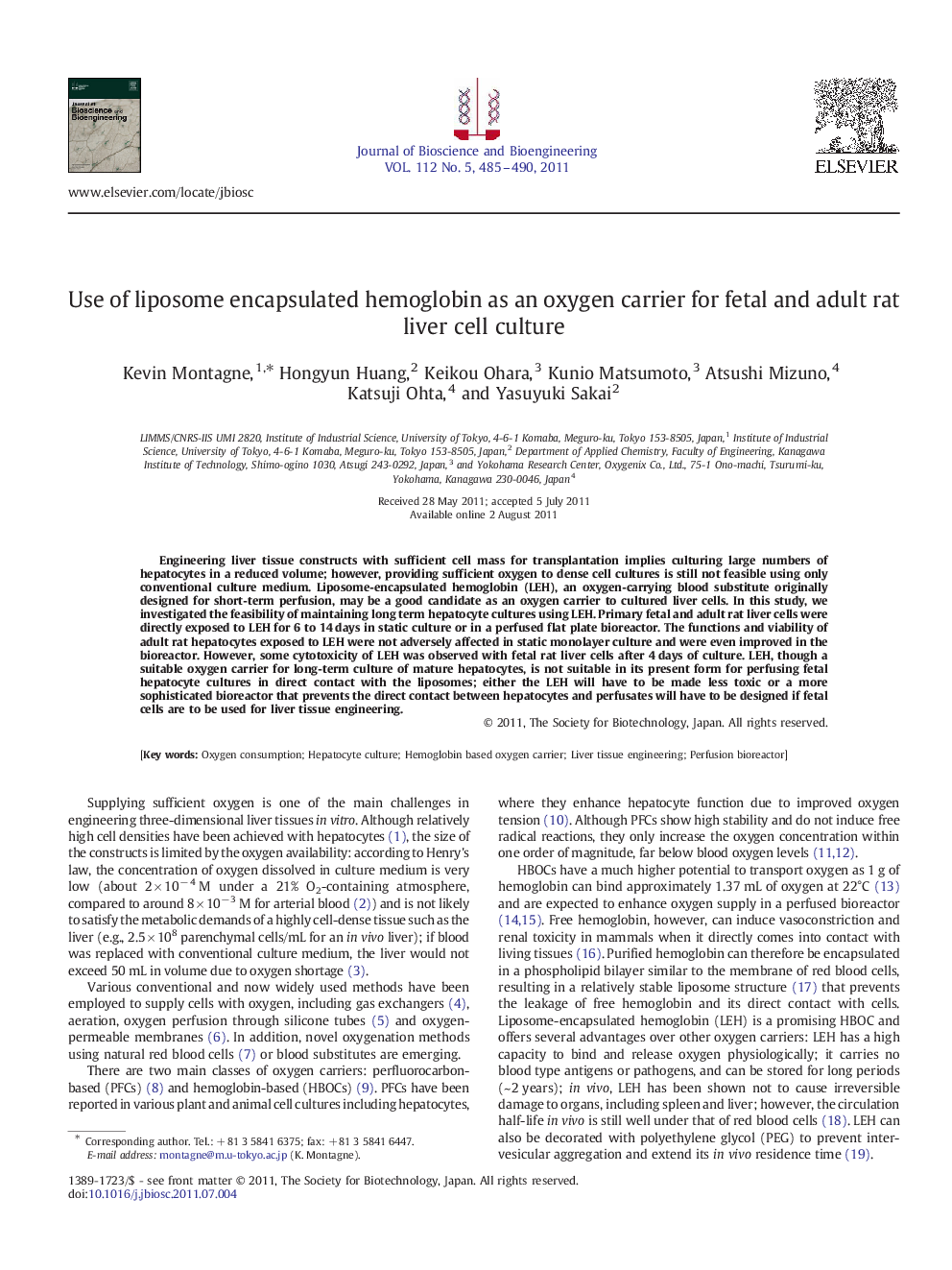| Article ID | Journal | Published Year | Pages | File Type |
|---|---|---|---|---|
| 21445 | Journal of Bioscience and Bioengineering | 2011 | 6 Pages |
Engineering liver tissue constructs with sufficient cell mass for transplantation implies culturing large numbers of hepatocytes in a reduced volume; however, providing sufficient oxygen to dense cell cultures is still not feasible using only conventional culture medium. Liposome-encapsulated hemoglobin (LEH), an oxygen-carrying blood substitute originally designed for short-term perfusion, may be a good candidate as an oxygen carrier to cultured liver cells. In this study, we investigated the feasibility of maintaining long term hepatocyte cultures using LEH. Primary fetal and adult rat liver cells were directly exposed to LEH for 6 to 14 days in static culture or in a perfused flat plate bioreactor. The functions and viability of adult rat hepatocytes exposed to LEH were not adversely affected in static monolayer culture and were even improved in the bioreactor. However, some cytotoxicity of LEH was observed with fetal rat liver cells after 4 days of culture. LEH, though a suitable oxygen carrier for long-term culture of mature hepatocytes, is not suitable in its present form for perfusing fetal hepatocyte cultures in direct contact with the liposomes; either the LEH will have to be made less toxic or a more sophisticated bioreactor that prevents the direct contact between hepatocytes and perfusates will have to be designed if fetal cells are to be used for liver tissue engineering.
